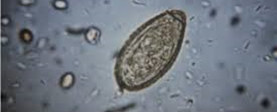SERVING
Those That
SERVED
Articles
Many Veterans May Have Time Bomb In Their Bodies
By USVCP Staff Writers
December 20, 2019
A half a century after serving in Vietnam, thousands of veterans have a new reason to believe they may be dying from a silent killer, a time-bomb of a disease that shows no signs of surrender. Latest test results from multiple studies show some veterans may have been infected by a slow-killing parasite while fighting in the jungles of Southeast Asia.
The Department of Veterans Affairs (VA) is aware of this deadly disease, and may soon make it a presumptive service-connected condition for the veterans who served in Vietnam.
While most military personnel in Southeast Asia, including Vietnam, ate canned meals or other meals provided by the military, some veterans may have eaten raw or undercooked freshwater fish during their service in Vietnam. These veterans might have been infected with tiny parasitic worms called liver flukes, which are found in the fresh waters of Southeast Asia. If eaten, liver flukes can grow to adulthood inside the human biliary duct system. The irritation and scarring caused by liver fluke infection can lead to bile duct cancer. Liver flukes are able to live for up to 25 years, so those ingested during the Vietnam War would no longer be alive in the bile ducts of veterans, according to the VA.
However, each case involving infections and diseases known to be cause by liver flukes are reviewed by VA and examined individually and of its own merits, and it’s up to each veteran to prove to VA that their bile duct cancer or other conditions caused by liver flukes are “as likely as not” related to their service time. The VA says fewer than 700 cholangiocarcinoma patients have passed through its medical system in the past 15 years. In part because they are unaware of the potential link to their war days in Vietnam, only 307 of the veterans submitted claims for benefits over that period. Even though the VA sometimes approves the link between wartime service and cholangiocarcinoma, the vast majority of claims, 3 out of 4, are rejected.
Liver flukes are small, flat parasitic worms that can infect the liver, gallbladder and bile ducts. A veteran may become infected when they eat raw or undercooked freshwater fish that have the parasites, according to the Centers for Disease Control and Prevention (CDC). Although liver-fluke infections are rare in the United States, it's estimated that 35 million people worldwide are infected with the parasites at any one time, mostly in Asia and Eastern Europe, according to a 2011 review article.
Most veterans who become infected with liver flukes have no symptoms, but some may experience indigestion, abdominal pain, diarrhea and constipation, according to the CDC.
One Vietnam veteran reported, “I had no symptoms at all, but I knew something was strange and abnormal in my body. Every time I would lay down on my stomach I would get a slight tinge of discomfort in my abdomen. I saw a few different doctors and none of them found anything wrong. Not until I had a liver biopsy did they find traces of liver flukes in my body. This is how they believe I got bile duct cancer.”
Liver flukes have a tendency to cause bile duct cancer (also called cholangiocarcinoma), which, again is a rare cancer of the biliary duct system. While it is rare, bile duct cancer becomes more common as veterans grow older and battle other service-connected conditions and age-related conditions.
To strengthen your case for a claim related to liver flukes, get tested immediately, Also, make sure and see a good and experienced VSO who knows how to navigate the VA system.

Add Comment
Dennis Murdock, 3/8/21
I served in Vietnam 6/69 to 6/70, 101st Airborne LZ Sally. Nine months in the jungle. My gall bladder was removed in the 80's because of diarrhea and stomach pain. Images showed what they thought was cancer.
Carlos Borges, 7/27/20
My gallbladder was taking out in an emergency.The surgeon told me the pathology exam showed it was in a necrosy state with gangrene.Was an open surgery with a scar 8" long.Before that I suffered a sudden pain in my hepatic area.Still have pain in the area,MRI's ,CT's by VA are negative. Now I'm worry about that illness.
Ron Reilly, 12/22/19
Live with the idea that we should always ask if we are infected. Let the VA, both the doctors and VARS tell us otherwise. I had the good fortune not to go to Viet, but I would check and be assured the challenge doesn't exist. Let the professionals tell you NO.
Gerald Evans, 12/22/19
I have all the above symtoms. I was a infantry rifleman. I served in Viet Nam from July 5 1969 to July 8 1970. My area of operation was Northern I Corps Ashu Valley Area of Operation. I live in Tooele, Utah, who would be my VSO?
